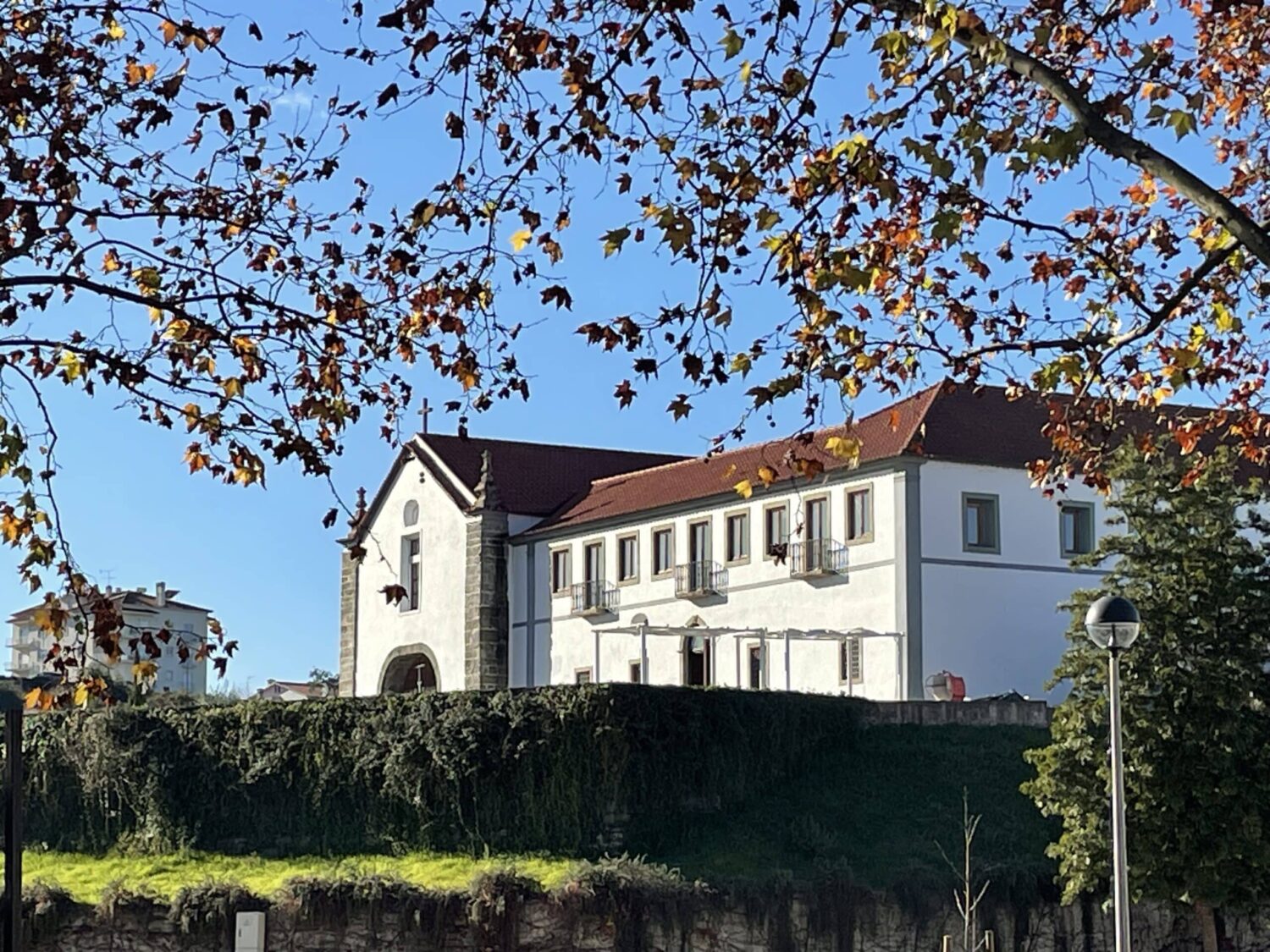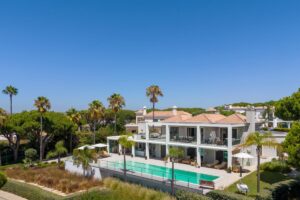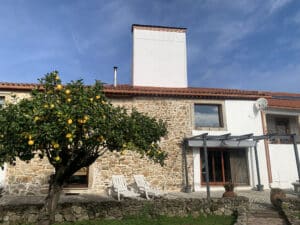“It’s like Christmas every day,” one new resident explained, enjoying a glass of wine as we sat overlooking the river in Sertã, a town in Central Portugal that is undergoing a revival in tourism and property investment.
This feeling is echoed by an American couple, Bob and Jenn, who moved this summer to a substantial renovated property in the historic centre. “The property kind of chose us,” they agreed when asked the reason for moving to this town. “We spent hours researching property online from the US and did not want to live in a city again or in the countryside. This town suited us for design, the area within the town, the property’s affordable price and for the town’s increasingly buoyant vibe.”
Certainly, this happy couple’s purchase is proving to be timely as the historic area of the town is becoming a much sought-after location for like-minded newbies and for those developers tuned in to trends and micro-movements in the market.

In January 2025, Central Region property developer Rural Properties is completing the purchase of two adjoining, three-storey properties near the castle in Sertã, aiming to divide each building into apartments for which the demand is high and current supply is limited.
The two, tired centenary buildings lend themselves to remodelling, plus there is a bonus three-level detached house at the rear with independent access to the historic area’s cobbled streets below. Currently designated as ‘storage’, this house once was the home of a cobbler and his family, remembered fondly by a long-retired neighbour. When allocated its own property number and after renovation, this house will be remodelled with Alojamento Local (short-term tourist rental) in mind.

Airbnb and guest houses are popping up all over Sertã, increasing the availability of tourism accommodation, which, in turn, will increase visitor numbers.
Ten minutes north up the IC8 from Sertã lies Pedrógão Grande, a name which is bouncing back from the publicity relating to the forest fires in 2017. This town is now attracting some serious foreign investment in private property and in housing development.
People love history and the 16th-century former church-run hostel Albergaria de São Pedro, purchased and made structurally secure in 2024 by Rural Properties, has attracted an American buyer who has been working on his ideal floor plan with Concepto Studio in Portimão. Heating systems and flooring types have been agreed and the old roof carefully will be replaced in January 2025, marking the start of this historic building’s resurgence as a private house.

Pedrógão Grande, despite its size and significant history, has no hotel. Travellers and tourists generally stay at the Hotel da Montanha over the river Zêzere in Pedrógão Pequeno. This outstanding hotel is in a different municipality and a different region despite being only a couple of kilometres’ drive from Pedrógão Grande and highlights the catching up that many towns need to achieve to attract the tourism numbers hoped for in their annual projections.
The smaller of the ‘Pedrógãos’ is also undergoing a mini boom, with the old market square ringing daily with the sound of workers and power tools as three of its landmark properties reach different stages of renovation.
The early 1900s bus garage was purchased in 2024 by an American couple in their 40s who aim to move to Portugal full-time in a couple of years’ time, when the renovation is complete.

Rural Properties’ Casa Adelina nears the end of its careful rebirth as the wooden floors, lighting and heating systems are installed and, almost next door, the old AGFA shop is being repurposed as a café with accommodation on the two levels above.
The town now has several new Alojamento Local options and Rural Properties’ 16th-century townhouse in Travessa da Asnega is attracting serious interest as the two-bedroom house has a 135m2 garden and a fun, young, almost beachside vibe, ideal for renting out in the summer months.

Those I have met who have been viewing and buying in these three towns all cite ‘authenticity’ alongside ‘value for money’ on their list of reasons for choosing the Central Region. This is not to say they are strapped for cash, often far from it, but all are determined to make a new life away from the tourist density of the Algarve and the over-crowding in Lisbon and Porto. Living in the Central Region can be an enriching experience, connected to the landscape and centuries-old local culture.
The cost-saving between Central and the south, when buying a four-bedroom house for example, can run into the millions, leaving buyers’ capital free to be enjoyed in other ways.
“We want to have some fun with our money,” is a frequent explanation from those choosing to not sink their capital into high-priced assets in expensive areas, choosing instead to experience life in the “real Portugal”.
It may not be Christmas every day, but, for many, it certainly feels like it.
By Paul Rees
The author runs Rural Properties, an innovative business that invests in the Central Region, buying, renovating and selling properties. For investment enquiries: www.rural-properties.com or contact info@rural-properties.com



















